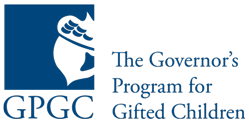Throughout the summer we will be posting weekly reports from the classes. Please let us know if there’s anything else you’d like to see or if you have any questions for specific instructors.
We are also posting regularly on Facebook. You don’t have to join Facebook to see our posts. The link is: https://www.facebook.com/gpgcla/
Freshmen (First Year) Classes:
Freshmen Science (Calvin Runnels, Instructor)
This week we continued to explore chemistry, using exciting experiments ranging from dissolving magnesium in acid to inflating balloons with dry ice to learn about solution concentration, gas laws, electromagnetic radiation, and the organization of the periodic table! I was very impressed with the students’ commitment to laboratory safety. Their curiosity about the world around them continues to encourage and inspire me!
Freshman Composition (Reese Menefee, Instructor)
Students shared their first finished fiction piece this week and participated in a writing workshop. In the writing workshop, the class was respectful, collaborative, and communicative. I am impressed with their feedback and creativity! In addition to workshop, they have become more comfortable with literary analysis. Overall, this was a great week! I am looking forward to seeing the class grow in their writing as the summer continues.
Freshmen Humanities (Christine Bertrand, Instructor)
This week we continued learning about communication in society by learning about logical fallacies that often pop up in arguments to distract audiences from the main purpose of a message or to attempt to defend a weak position. If an audience can recognize fallacies, they can better analyze the true purpose behind a speaker’s message. After learning about persuasive techniques last week and logical fallacies this week, students wrote a letter of application for acceptance into a zombie-proof compound during a zombie apocalypse, hoping to convince the staff at the compound of their value to the community and the future of humanity. This week, students will vote based upon the merits of the contents of the letters, which are written anonymously using fake names and identities.
Graduate Classes:
Grad Psychology (Dr. Linda Brannon, Instructor)
For week two, the students chose to focus on gender issues, the details of which appear in the day-by-day breakdown. The week went well.
Monday: I carried over one of the concepts from Freud by explaining one of the most famous psychological assessments—the Rorschach Inkblot Test. That test dates back to the early part of the 1900s, when Hermann Rorschach borrowed Freud’s concept of projection (seeing our own faults in others rather than in ourselves). He constructed blots of ink as ambiguous stimuli and asked psychiatric patients to interpret these images. The test became very popular and continues in the present, although its validity as a psychiatric diagnostic is questionable.
Tuesday: We began the material on gender with an examination of gender stereotypes and how stereotypes can lead to prejudice and discrimination. We also reviewed the history of gender stereotypes and how those beliefs still echo in our society. Our discussion included both how men and women are subject to stereotyping, as well as prejudice and discrimination based on these stereotypes.
Wednesday: I led them through a review of the “bad old days” when sex discrimination was legal and some of the changes that have occurred as a result of legal changes.
Thursday: We ended the week with an assessment that I intended to test how well they had paid attention and remembered some of the terminology that we discussed.
Our continuation of the topic of gender consisted of a discussion of some of the big changes that have occurred in gender roles and how those changes are well-accepted by some people but not others.
The students asked for next week’s topic to focus on mental disorders, which is always of interest.
Conflict and Diplomacy (Jessica Markstrom, Instructor)
This week we discussed three major paradigms of international relations (realism, liberalism, and constructivism). We discussed the rise of weapons of mass destruction and the impact they had on conflict and diplomacy during the Cold War and in a post Cold War environment. Coercive diplomacy, the use of force, and interstate conflict were explained. Students learned about game theory and how it relates to conflict including the Prisoner’s Dilemma, Chicken, and Stag Hunt games. Bargaining theory and a basic theorem for bargaining was introduced.
Readings for the week included: Arms and Influence, Chapter 1, by Thomas Schelling; Night of the Living Wonks by Daniel Drezner in Foreign Policy, June 15, 2010; Leashing the Dogs of War, Chapter 2, International Sources of Interstate and Intrastate Conflict, by Jack Levy, 2007.
Graduate Creative Writing (Reese Menefee, Instructor)
This week was great! Students shared their flash fiction pieces. They were enthusiastic, focused, and collaborative. They effectively communicated their goals for each piece and provided constructive feedback for each other as a class. They are making progress in their writing and I am excited to see them continue to grow as writers.

